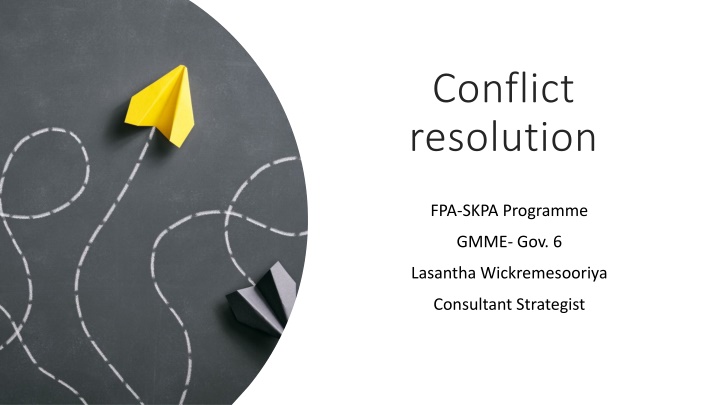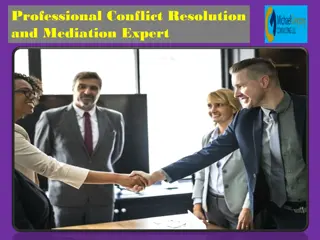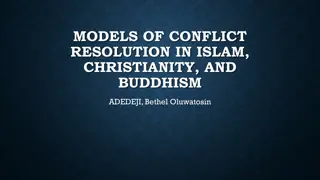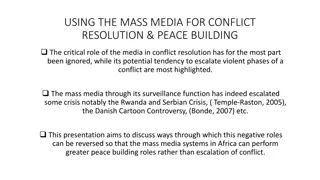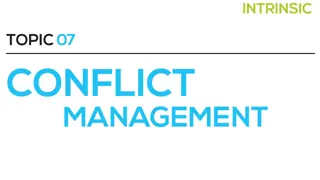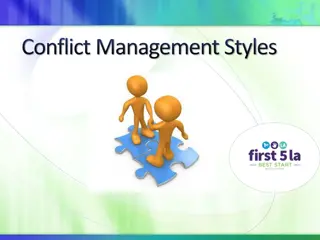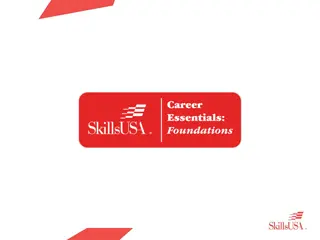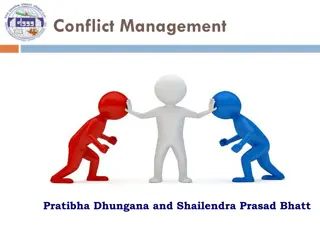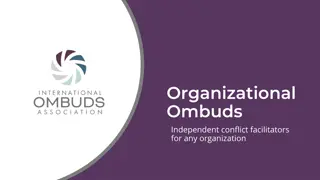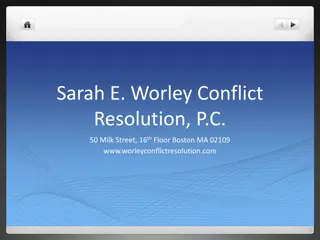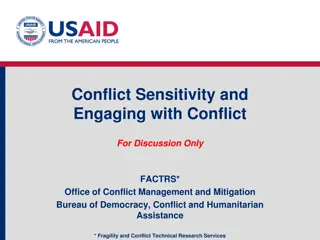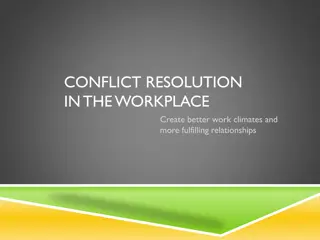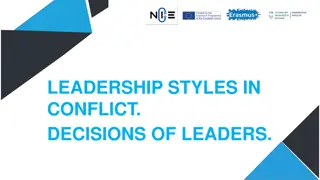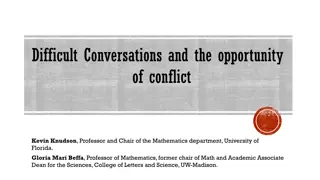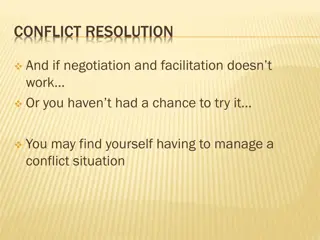Effective Conflict Resolution Strategies in Organizations
Conflict resolution in organizations involves addressing communication differences, structural discrepancies, personal and cultural gaps that lead to conflicts. Understanding the dimensions of conflict-handling intentions can help in choosing appropriate strategies like avoidance, accommodation, competition, compromise, and collaboration to resolve conflicts effectively.
Download Presentation

Please find below an Image/Link to download the presentation.
The content on the website is provided AS IS for your information and personal use only. It may not be sold, licensed, or shared on other websites without obtaining consent from the author.If you encounter any issues during the download, it is possible that the publisher has removed the file from their server.
You are allowed to download the files provided on this website for personal or commercial use, subject to the condition that they are used lawfully. All files are the property of their respective owners.
The content on the website is provided AS IS for your information and personal use only. It may not be sold, licensed, or shared on other websites without obtaining consent from the author.
E N D
Presentation Transcript
Conflict resolution FPA-SKPA Programme GMME- Gov. 6 Lasantha Wickremesooriya Consultant Strategist
Communication differences; misunderstandings, different interpretations of the same information, noise Structural differences; role ambiguity: coordination, responsibilities Personal differences Cultural gap Personal differences in values, goals, or styles Conflict emerges from
Dimensions of Conflict-Handling Intentions Source: K. Thomas, Conflict and Negotiation Processes in Organizations, in M.D. Dunnette and L.M. Hough (eds.), Handbook of Industrial and Organizational Psychology, 2nd ed., vol. 3 (Palo Alto, CA: Consulting Psychologists Press, 1992), p. 668. .
6,500,000/= 5,250,000/= 5,750,000/= 5,500,000/=
Avoidance Does not deal with issues at hand Lose-lose strategy Use: when conflict is trivial or emotions are running high and need to cool down! Accommodation Agreement through yielding or conforming to the positions of others Lose-win strategy Use: when maintaining harmonious relationships are required; where the issues are not important to you Ways of Dealing with Conflict
Competition/Forcing Offensive aggressive approach Win-lose/lose-win strategy Use: where a quick resolution is needed Compromise Involves a search for a solution which is mutually acceptable Lose-lose strategy Use: when desirous of achieving a temporary solution or time pressure demand a speedy solution Ways of Dealing with Conflict
Collaboration Total-membership approach, generates creative solution Win-win strategy Use: where the issue is too important to be compromised, time pressures are minimal, and all parties want to satisfy their interests Ways of Dealing with Conflict
Conflict Resolution?
Use of goal setting Reduces ambiguity Specific What are the skills required? Effective Listening and feed back Effective communication Reduces distortion Improves accuracy Persuasion Get the other to do what you want, without using formal authority
Bargaining Strategies Integrative Bargaining Negotiation that seeks one or more settlements that can create a win-win solution An organisations requests for a budget of US$ 5000 for a project The donor refuses to fund the total amount due to bad track record The Board and the Donor sit down to find a solution
Distributive Vs Integrative Bargaining Bargaining Characteristic Distributive Bargaining Integrative Bargaining Goal Get as much of pie as possible Expand the pie Motivation Focus Win-Lose Positions Win-Win Interests Information Sharing Low High Duration of relationships Short term Long term Source: Based on R. J. Lewicki and J. A. Litterer, Negotiation (Homewood, IL: Irwin, 1985), p. 280.
The Negotiation Process History, target audience, cultures, your goals, other party goals, time frames Negotiators? Venue, time constraints, limitations (on issues to be negotiated) procedure in the event of an impasse Amplify, clarify, justify demands/issues The Give and Take process Finalise agreement, agree on way forward/implementation and monitoring
Let us never negotiate out of fear But let us never fear to negotiate -John F. Kennedy
